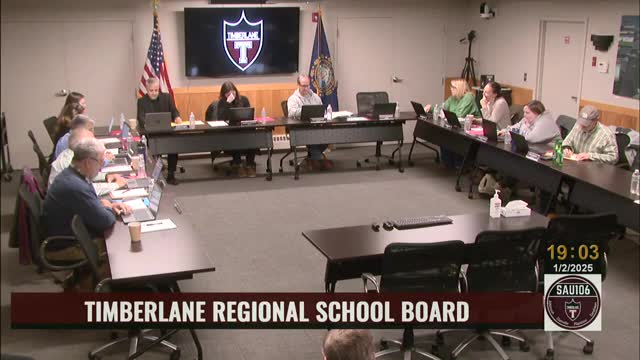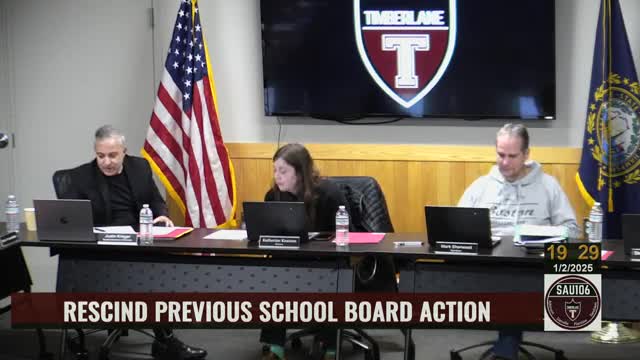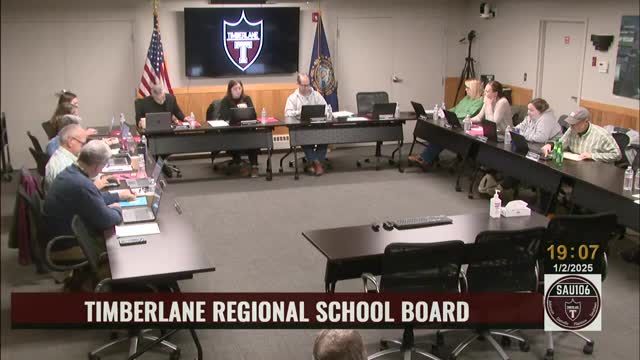Article not found
This article is no longer available. But don't worry—we've gathered other articles that discuss the same topic.

Votes at a glance: Timberlane school board (Jan. 2) — kindergarten warrant, Phase 3 projects, contracts, calendars, curriculum and travel

Board approves Phase 3 project list; legal counsel says voters appropriate lease payments but board decides to enter leases

